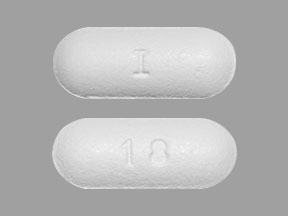Levofloxacin Interactions
There are 529 drugs known to interact with levofloxacin, along with 10 disease interactions, and 2 alcohol/food interactions. Of the total drug interactions, 118 are major, 344 are moderate, and 67 are minor.
- View all 529 medications that may interact with levofloxacin
- View levofloxacin alcohol/food interactions (2)
- View levofloxacin disease interactions (10)
Most frequently checked interactions
View interaction reports for levofloxacin and the medicines listed below.
- Advair Diskus (fluticasone / salmeterol)
- Aspirin Low Strength (aspirin)
- Augmentin (amoxicillin / clavulanate)
- Benadryl (diphenhydramine)
- Combivent (albuterol / ipratropium)
- CoQ10 (ubiquinone)
- Cymbalta (duloxetine)
- Eliquis (apixaban)
- Fish Oil (omega-3 polyunsaturated fatty acids)
- Flonase (fluticasone nasal)
- Lasix (furosemide)
- Lipitor (atorvastatin)
- Lyrica (pregabalin)
- Metoprolol Succinate ER (metoprolol)
- Metoprolol Tartrate (metoprolol)
- MiraLAX (polyethylene glycol 3350)
- Mucinex (guaifenesin)
- Nexium (esomeprazole)
- Norco (acetaminophen / hydrocodone)
- Paracetamol (acetaminophen)
- ProAir HFA (albuterol)
- Singulair (montelukast)
- Symbicort (budesonide / formoterol)
- Tylenol (acetaminophen)
- Vitamin B12 (cyanocobalamin)
- Vitamin C (ascorbic acid)
- Vitamin D3 (cholecalciferol)
- Xanax (alprazolam)
- Zofran (ondansetron)
- Zyrtec (cetirizine)
Levofloxacin alcohol/food interactions
There are 2 alcohol/food interactions with levofloxacin.
Levofloxacin disease interactions
There are 10 disease interactions with levofloxacin which include:
- colitis
- CNS disorders
- myasthenia gravis
- peripheral neuropathy
- QT interval prolongation
- tendonitis
- crystalluria
- diabetes
- hemodialysis
- renal dysfunction
More about levofloxacin
- levofloxacin consumer information
- Compare alternatives
- Pricing & coupons
- Reviews (746)
- Drug images
- Side effects
- Dosage information
- Patient tips
- During pregnancy
- Support group
- Drug class: quinolones and fluoroquinolones
- Breastfeeding
Related treatment guides
Drug Interaction Classification
| Highly clinically significant. Avoid combinations; the risk of the interaction outweighs the benefit. | |
| Moderately clinically significant. Usually avoid combinations; use it only under special circumstances. | |
| Minimally clinically significant. Minimize risk; assess risk and consider an alternative drug, take steps to circumvent the interaction risk and/or institute a monitoring plan. | |
| No interaction information available. |
See also:
Further information
Always consult your healthcare provider to ensure the information displayed on this page applies to your personal circumstances.


